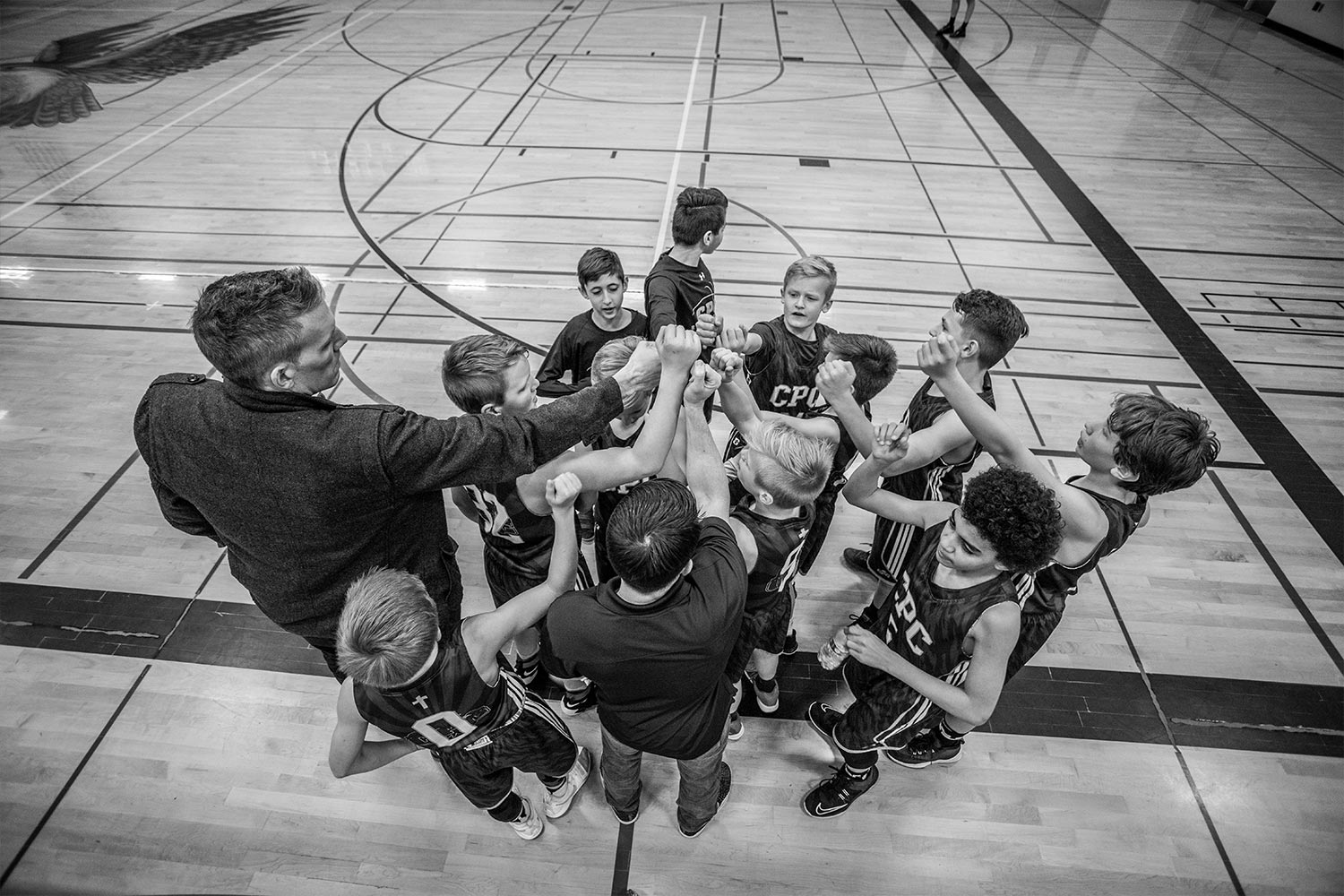More Than the Olympics: Sports, Nonprofits & Community
Don’t forget how nonprofits have helped create America’s awe-inspiring performers and communities at the Olympics.

Behind every great sport in the U.S. is a nonprofit.
You may not see a nonprofit logo on an Olympian’s cap or the back of a superstar’s jersey, but nonprofiteers are behind every great sport in the U.S. No athlete has reached the pinnacle of his or her sport outside the complex eco-system of volunteer, amateur and community nonprofit sports.
And amateur sports embody “the best of nonprofit spirit: people getting together about something people care about,” astutely notes sports anthropologist Orin Starn of Duke University.
Sports nonprofits of all sizes touch millions of Americans by organizing 4-year-old T-ballers and senior swimmers, helping them to get fit, learn core values, connect with others in their communities and more. Amateur and recreational athletes are supported by coaches, referees, chaperones, timekeepers and a host of others acting as volunteers or earning modest salaries from nonprofit organizations.
‘Every Kid Deserves a Coach’
Volunteers for local community organizations are often the first mentors that young athletes encounter. These volunteers are usually parents or teachers, frequently athletes in their own right.
“There is a strong idea [in American culture] that youth sports is The Way,” says Orin. “It’s a mechanism of value transmittal, a way to teach kids about teamwork and competitiveness; there’s a notion that every American kid deserves to have a coach.”
Volunteer Mike Gonzaga coaches 23 young people in an Encino, California, high school boxing club. Many of his boxers have had had social problems with drugs, alcohol and gangs. Mike tells his team that being a professional athlete is not going to last forever.
“But you are going to be a man the rest of your life,” Gonzaga says.
Once you put the uniform on, you are ‘The Ref,'” according to Kammi Cottrell, a coach, player, and referee for basketball in Anne Arundel County, Maryland (pictured at right with young player). “You take command of the game so that the kids can learn.”
Trained and employed by the nonprofit Maryland Basketball Officials Association, she referees games in the Anne Arundel County school system. The Association, which made 15,000 assignments to officials in 2006, taught her that refereeing is more than knowing the rules of the game; it is about maintaining professionalism and commanding the respect of the athletes, coaches and spectators.
Binding Communities in Good and Bad Times
Beyond the game, Kammi says, “a sports team is a family — you are not always going to get along all the time with people in this family, but you are going to learn how to manage these relationships if you are going to be the best athlete you can be.”
Many nonprofit sports clubs serve a valuable function of helping people to get together or engage in social networking. For instance, for a newcomer, sports is a great way to find people with like interests and to connect with a new community. Recreational athlete Evelyn Dibben, a software engineer, moved to Denver in early 2008. She used various Internet resources such as meetup.com and Craigslist to find volleyball, biking and hiking groups. “Sports is a great way to launch social relationships,” Evelyn says. “I feel I am a part of the community where people depend on me and I on them.”
Sports Volunteers ‘Give and Give and Give’
The contribution of sports nonprofits extends beyond even the binding of local communities. The oft-repeated cliche that sports inculcates leadership skills may actually be true. A study by the Women’s Sports Foundation, launched by tennis legend Billie Jean King, found that eighty percent of the female executives at Fortune 500 companies identified themselves as having played sports.
In spite of such far-ranging influence, rarely do community sports organizations and their volunteers get much recognition. But one 71-year-old baseball coach got his thanks in especially memorable way last month. When Major League Baseball (MLB) star Josh Hamilton competed in the MLB Home-Run Derby, he asked Clay Council to be his pitcher. In front of thousands at Yankee Stadium, Council threw more than 50 pitches to Hamilton, who went to high school where Clay coaches as a volunteer.
Through the American Legion and Little League, Clay – former tobacco farmer, minor league ballplayer, soldier and airport worker – has been throwing batting practice to kids in Cary, North Carolina, for decades.
“He’s done so much for many kids and probably hasn’t got a lot of thank yous for it. [Having him pitch for the derby] is a big thank you,” Hamilton told the Charlotte News & Observer. “There are so many people like Clay that give and give and give and never expect anything in return.”
People like Clay – and the nonprofit organizations they belong to – do more than provide the training ground for aspiring Olympians and sports professionals. Although often discounted by “traditional” nonprofits, these groups have few rivals in their capacity to develop our leaders and engage our communities.
You might also like:
- A Practical Guide to Getting and Keeping Nonprofit Volunteers
- Treasurers of All-Volunteer Organizations: Eight Key Responsibilities
- Volunteering Alone Will Not Save Us
- Up Your Game with Skills-based Volunteering
- Creating a More Robust Volunteer Development Program
You made it to the end! Please share this article!
Let’s help other nonprofit leaders succeed! Consider sharing this article with your friends and colleagues via email or social media.
About the Author
Janice Clark has worked in the nonprofit housing and community development field for nearly 15 years. She’s on staff in the communications department of a national nonprofit based in Washington, DC, and volunteers to support arts activities in her hometown of Annapolis, Maryland. Janice has been an amateur athlete for 35 years, playing volleyball, softball and whatever other pickup game she can get into.
Articles on Blue Avocado do not provide legal representation or legal advice and should not be used as a substitute for advice or legal counsel. Blue Avocado provides space for the nonprofit sector to express new ideas. The opinions and views expressed in this article are solely those of the authors. They do not purport to reflect or imply the opinions or views of Blue Avocado, its publisher, or affiliated organizations. Blue Avocado, its publisher, and affiliated organizations are not liable for website visitors’ use of the content on Blue Avocado nor for visitors’ decisions about using the Blue Avocado website.








Thanks for a the article. Team sports taught me so much about hard work and persistence, working effectively with others to achieve a goal (even if you don’t get along personally) and fairness. Playing team sports as a kid definitely impacted my decision to work in the social sector.
Hi Nelson,
Sports can even teach you about leadership and how to work with co-workers in a private company environment.
It teaches people how to work together to achieve a common goal.